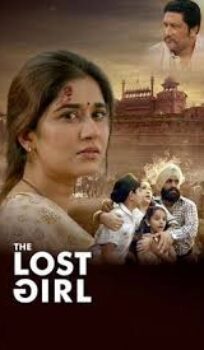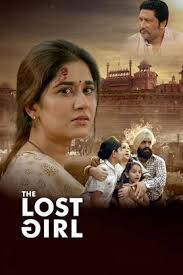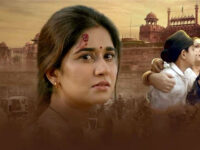
The Lost Girl 2024 Hindi Movie
- Prachi BansalAronica RanoliyaBhupesh Singh
- Aditya Ranoliya
- Drama
- March 4, 2024
- Hindi
- 8.8/10
Synopsis
The Lost Girl arrives as a breath of fresh air. Released in April 2024, this Hindi-language drama is more than a film—it’s a journey through time, trauma, and the unwavering human spirit. Based on the grim backdrop of the 1984 Delhi riots, the film centers on a young girl whose life is shattered by violence but rebuilt through resilience.
This is not just a movie about loss—it’s a movie about the relentless search for truth, selfhood, and belonging.
Storyline Rooted in Reality
At the core of The Lost Girl is a heartbreaking yet inspiring story. The film opens in the tense and turbulent days of November 1984, when Suhani, a five-year-old Sikh girl, is separated from her family amidst the chaos of the anti-Sikh riots. Flames rise, streets fill with fear, and in a moment, her world is torn apart.
She is eventually rescued by a compassionate Haryanvi couple who raise her as their own in a modest rural village. But the scars of that traumatic night linger in the background of her growing years. Suhani, renamed and raised under a new identity, begins her life again—but a part of her remains missing.
As she enters adulthood, a deep unease begins to surface. Familiar shadows in dreams, fragmented images of a burning city, and a nagging feeling that something about her life doesn’t quite add up. When her marriage is arranged, the emotional weight becomes unbearable. She halts the wedding and embarks on a quest to uncover her true past.
Characters That Breathe Emotion
The film owes much of its strength to its casting and character depth. Prachi Bansal, who plays adult Suhani, delivers a nuanced performance layered with quiet strength and vulnerability. Her portrayal captures the essence of someone torn between two identities—one she has always known, and one she has only recently begun to remember.
The child version of Suhani is played by Aronica Ranoliya, whose performance is both heart-wrenching and pure. Her eyes tell the story of innocence caught in the crossfire of hate, and her silent expressions carry more weight than many dialogues.
The foster parents, played by Bhupesh Singh and Poonam Jangra, offer complexity beyond stereotype. They are loving and warm, yet caught in their own dilemma of hiding Suhani’s past. As protective figures, they straddle the line between saviors and secret-keepers.
Cinematography and Visuals
Visually, the film exceeds expectations for an independent production. The cinematography captures contrast beautifully: the bright, slow-paced countryside where Suhani is raised, and the grim, chaotic frames of riot-ridden Delhi.
Cinematographer Farooque Khan uses color with purpose. Childhood scenes are drenched in red and brown hues, symbolizing both warmth and buried trauma. The present-day narrative unfolds in washed-out tones, representing a life that has been half-lived.


